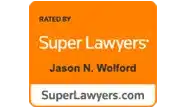Evictions
Evictions
In California, before a landlord can recover possession of your unit and/or file a lawsuit they must first provide you with a written notice. Where in California you live makes all the difference in terms of your rights in an eviction, so be sure to consult with an attorney about what rights and defenses you may have to an eviction.
There are two basic types of eviction notices: notices that provide an opportunity to cure and those that do not. Some just causes for eviction do not require landlords to provide the opportunity to “cure” the violation.

over
35
years of experience in representing tenants.
Eviction Process in San Francisco
While most lawsuits can take upwards of a year to resolve, the life of an eviction lawsuit is measured in weeks. If you have been served with an unlawful detainer, you must act quickly. Tenants generally only have five calendar days to file a response with the court after being served with the lawsuit. Failure to file a response within five days could result in a default judgment, which in turn could mean losing your right to fight the lawsuit. Representation by an experienced tenant’s rights attorney can be a tremendous asset in helping you stay in your home or secure a settlement.
San Francisco is one of the few cities in the nation with strong eviction protections for tenants. For those units covered under the San Francisco Rent Ordinance, a landlord can only evict a tenant for one of sixteen “just causes” for eviction. If a landlord cannot assert a right to evict for one of these grounds they cannot legally evict you. If you have been evicted without just cause and believe that your unit is/was covered by the just cause provisions of the Rent Ordinance you may have a basis for a wrongful eviction claim. Scroll down for a complete list of San Francisco’s Just Causes.
Receiving an Eviction Notice Doesn’t Mean You Should Vacate
It’s merely the first step in a process. Often, tenants successfully defend their eviction lawsuits and are able to stay in their homes. In other cases, tenants may be able to negotiate a monetary settlement in exchange for relinquishing their tenancies. To figure out what’s best for your situation, talk to someone who knows the process.
Three Day Notices to Cure or Quit, and Thirty (or Sixty) Day Notices Terminating Tenancy (Notice to Quit)
If you receive a notice that doesn’t have this language on it, that doesn’t specify one of these time frames for vacating, or isn’t a proper written notice served on you and/or posted at your residence, you have not received legal notice of eviction and you can continue your tenancy.
If you receive a 3-Day Notice to Cure or Quit, you have two options: 1. pay the rent you owe, or “cure” the violation of the rental agreement listed on the Notice, or 2. do nothing, and be aware that after three days elapse, your landlord may serve you with an “unlawful detainer” (eviction) lawsuit.
Thirty or Sixty Day Notices Terminating Tenancy most often apply to “no-fault” evictions — for example, in cases of owner move-in evictions or the Ellis Act. Upon receiving this type of notice, tenants should first determine whether they are covered by an eviction protection or “just cause” law (see below). If so, the eviction notice must list a valid reason for eviction. Additionally, the notice may need to be accompanied by 50% of the applicable relocation payments, which are set by statute.
After the time specified on the notice has elapsed, the landlord may file an unlawful detainer action against you in court, then serve you with the summons and complaint. Once you are served, you have only five calendar days — including weekends and holidays — to file a response with the court.
If the tenant fails to file a response within five days, the landlord may request a default judgment against the tenant. If the court grants the default, the sheriff may arrive at the property to enforce the eviction within two to three weeks in San Francisco. (In other jurisdictions, the sheriff’s eviction may occur just five days after the court’s judgment.) Also in San Francisco, but not necessarily in other jurisdictions, the court will often grant a one-week stay of eviction in order to give the tenant time to find alternate housing.
In almost all cases, tenants should file a response immediately, as this will at least buy them more time. Once tenants file a response, the lawsuit will be set in motion: a trial date will be set, the landlord or their attorneys may send you discovery requests (which also need to be answered within a limited time period), and either side may enter motions or demurrers with the court.
Eviction lawsuits proceed on an extremely compressed timetable. Unfortunately, self-represented parties are prone to missteps that may prove costly, and the landlord’s attorneys may capitalize on that. An experienced tenants’ attorney can guide tenants through the process and be a powerful ally in settling the lawsuit.
Eviction Protections in San Francisco
Most tenancies in San Francisco are governed by the San Francisco Rent Ordinance (Chapter 37 of the Administrative Code). Tenants living in homes protected by the Rent Ordinance are entitled to just cause eviction protections.
Eviction protections under the San Francisco Rent Ordinance apply to:
- Apartment buildings built before 1979
- Single-family homes built before 1979
- Condominiums built before 1979
- Units lacking a certificate of occupancy
To pursue an eviction of a tenant in a unit protected by the Rent Ordinance a landlord must have one of 16 reasons or “just causes.”
To bring an eviction a landlord has to provide written notice to the tenant. The type of notice and amount of time for the notice depends on the reason alleged for the eviction.
If a tenant fails or refuses to move out of the unit prior to the termination of the notice period a landlord may file a lawsuit for Unlawful Detainer (eviction) against a tenant and begin eviction proceedings against that tenant.
Just Causes for Eviction
- Nonpayment of Rent. Habitual late payment, or frequent bounced checks.
- (Material) Lease Violation that has not been corrected after written notice from the landlord.
- Nuisance or substantial damage to the unit (waste), or “creating a substantial interference with the comfort, safety, or enjoyment of the landlord or other tenants in the building.“
- Illegal Purpose. Where a tenant is using or permitting the rental unit to be used for an illegal purpose. **Effective November 9, 2015, this just cause may not be used to evict a tenant from an illegal residential unit.
- Refusal to Execute Written Extension / Renewal. Where a tenant’s lease term has expired and the tenant has refused to execute a written extension / new lease with the same material terms.
- Refusal to Provide Landlord Access to the Unit. Where the tenant has, after written notice to cease, refused the landlord access to the unit as required by state or local law.
- Holdover of Unapproved Subtenant. Where a tenant holding possession at the end of an oral or written agreement is an unapproved subtenant.
- Owner or Relative Move-in: Wherein landlord or their relative (assuming landlord already resides in the building) seeks to recover possession in good faith, without ulterior motive and with honest intent for their own use and enjoyment or that of a relative. Requires landlord/relative to move in within 3 months and reside there for a minimum of 36 months. Tenants who have lived in the unit for 1 year or longer are entitled to relocation payments. For more information see link here.
- In Conjunction with the Sale of a Unit where Unit is a Condo. Seniors and permanently disabled tenants cannot be evicted for condo conversions. Other tenants have a right to a 1-year lease or 120 days with relocation payments.
- Demolition or removal of a residential unit from residential use. Requires landlord to obtain permits, requires landlord to pay relocation under Sec. 37.9C of the Rent Ordinance. Very rarely approved/employed.
- Capital Improvements /Rehab. Allows temporary removal of a residential unit from housing use while landlord conducts construction work. The landlord is required to pay relocation payments under 37.9C and/or state law depending on the length of displacement. The tenant has the right to return to the unit once work has been completed at the prior rent, adjusted by the Rent Board’s allowable rent increases such as the annual rent increase.
- Substantial Rehabilitation of a building that is essentially uninhabitable with all the necessary permits. The tenant has a right to relocation payments.
- Ellis Act Evictions. Allows landlords to “get out of the rental business” by removing the entire building from the rental market. Provides that landlord cannot re-rent for five years, and cannot convert units into condos. Evicted tenants entitled to a 120 day notice period, while seniors over the age of 62, and disabled tenants are entitled to a notice period of one year. All tenants who have resided in unit for one year or more are entitled to relocation payments under 37.9C of the Rent Ordinance.
- Lead Abatement as required by the San Francisco Health Code with temporary removal of the unit from housing use for less than 30 days. Provides for relocation payments pursuant to 37.9C of the Rent Ordinance.
- Demolition in Conjunction with a Development Agreement. Done in accordance with the terms of a development agreement entered into by the City under Chapter 56 of the San Francisco Administrative Code.
- Good Samaritan Occupancy Status Expires, and the landlord serves an eviction notice within 60 days after expiration of the status. (The Good Samaritan Occupancy Status is when a tenant loses their home due to a disaster and the landlord rents another temporary unit to the tenant for low rent.)
I Don’t Live in San Francisco, Do I Have Any Protection from Eviction?
Rent control and eviction control rights vary from county to county and city to city. Oakland and Berkeley each have Ordinances similar to San Francisco. The following Bay Area cities have also recently adopted rent ordinances of their own, though the protections they provide vary widely.
- Alameda (city)
- Emeryville
- Mountain View
- Richmond
State Wide Rental Protections
For tenants living in parts of the state or in units not covered by eviction control, landlords may be able to evict tenants without just cause. However, in 2019 California passed state-wide rent control. The new law does not apply to ALL tenants in California but does extend protections to hundreds of thousands of tenants who otherwise were not protected. Read our article on State-Wide Protections for more information.
Get Started
For more information or to discuss your legal situation, call us today at (415) 649-6203 for a phone consultation or submit an inquiry below. Please note our firm can only assist tenants residing in San Francisco, Oakland & Berkeley.














